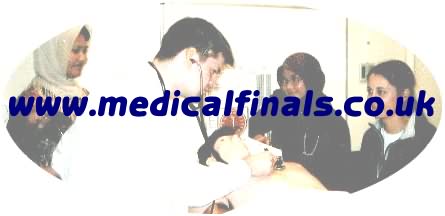Back to Finals Advice Page
Tips for Overseas Candidates Taking Finals
By Dr John Lim, Senior House Officer, Medicine, Ulster Hospital, Belfast
& Dr Ian Bickle, Specialist Registrar, Radiology, Sheffield
(You can click here for a Word version of this file, which should print out on fewer pages.)
Below are a few key tips to help with the nerve-wrecking day that is finals for those students who have come overseas to study in the UK.
- The main difficulty for the overseas student is language, especially for those where English is not their mother tongue. But most of the overseas students should be able to master confidently both written and spoken English by the beginning of final year.
- However the overseas student will still have some weakness in communication, compared to a local student. Overseas students may encounter some difficulty in understanding local accents or dialects. This is considered a disadvantage during the clinical examination, especially psychiatry or GP cases.
- Never be afraid to ask your patient to rephrase or repeat a comment which you cannot understand. In addition to local accents, regional slang may be very difficult to appreciate too.
- In order to pass examinations in medical school, there is no secret but to work hard, for both written and clinical finals. You will need to be very conscientious to practice your verbal communication skills with patients from an early stage.
- For written finals, small group study is a more efficient then studying alone, especially when discussing popular topics from past papers. You may find it useful to try to do this with a mixed bunch of people in order to exploit each others experiences and understanding.
- For clinical finals, make an effort to see as many patients as possible, and try to pair up with local students, rather than a group of friends from the same country. This will improve your communication in English.
- During the clinical examination external examiners may come from other parts of the UK and so have different accents too. Again donít be shy to ask for a question to be repeated if you are unsure of the meaning.
- If you still have to perform a long case at your school make sure you leave plenty of time to practise. This is often neglected by all students. As it is very communication orientated in terms of taking a history and presentation skills, special attention is required.
BY: John Lim & Ian Bickle, December 2005
www.MedicalFinals.co.uk
